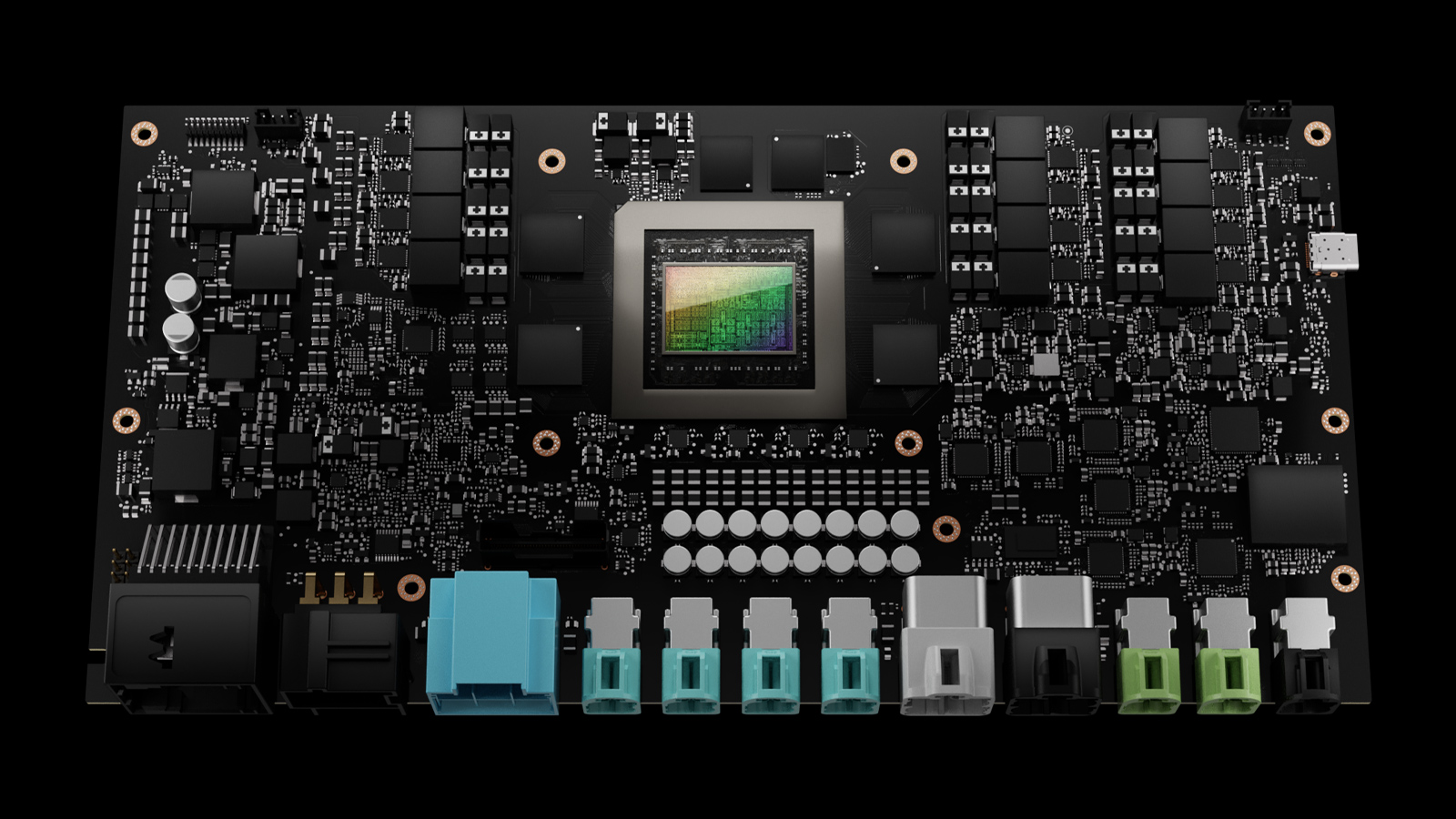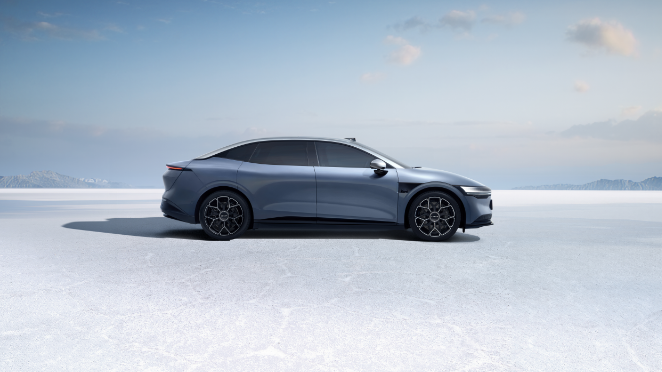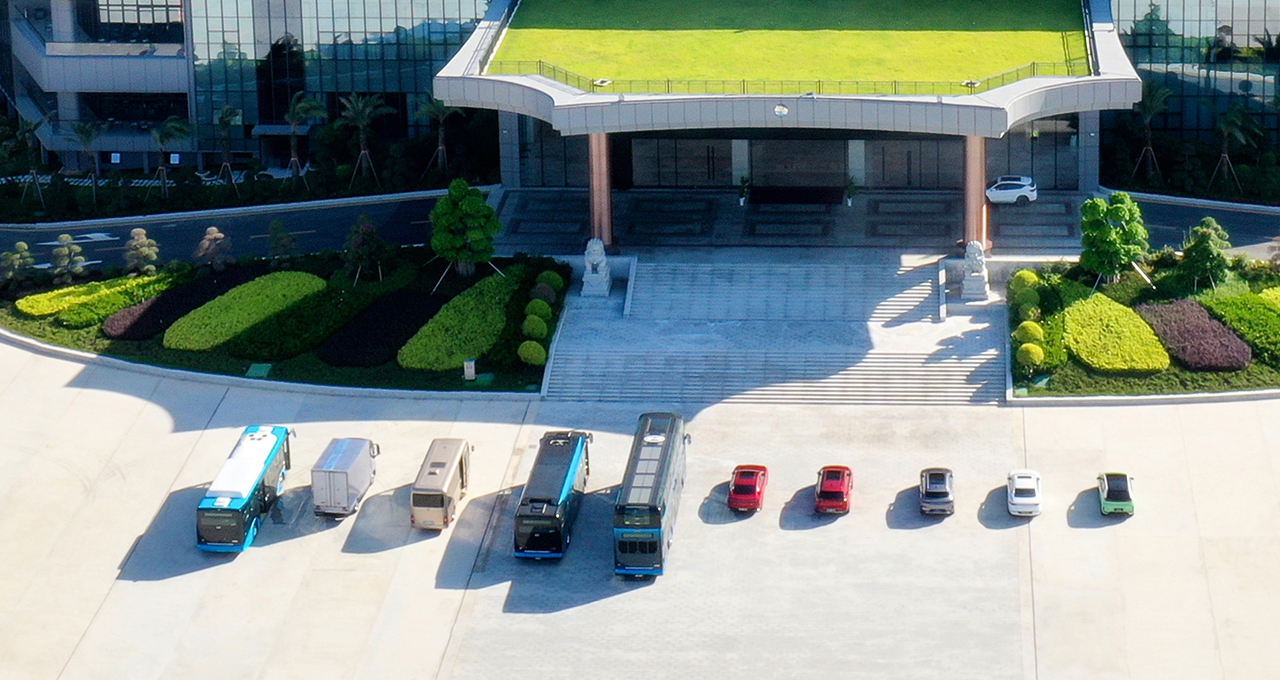- Home
- OFweek News
- Which Chinese Electric Vehicle Companies Are Joining NVIDIA’s Latest Smart Driving Thor Chip Team?
Which Chinese Electric Vehicle Companies Are Joining NVIDIA’s Latest Smart Driving Thor Chip Team?
Published: February 13, 2025 09:46
2023 was the year NOA (Navigate On Autopilot) was introduced to urban areas, and 2024 is set to be the year of its expansion into advanced smart driving across China. Strengthening partnerships with Chinese automakers has become a critical strategy for Nvidia to boost its market share. Nvidia CEO Jensen Huang recently arrived in Shenzhen to attend the company’s annual conference.
At Consumer Electronics Show 2025(CES 2025), Nvidia announced that its Thor chip has officially entered mass production, now delivering a computing power of 5000 TOPS. The company claims that this chip is designed to handle the complex calculations needed for Level 4/5 autonomous driving, as well as in-car entertainment, smart cockpit features, and more.

source: NVIDIA
Nvidia’s automotive business is the company’s fourth-largest segment, following data centers, gaming, and professional visualization. Nvidia first launched its NVIDIA DRIVE platform for smart driving development back in 2015. Since then, the company has consistently updated the platform, releasing a new automotive-grade SoC (System on Chip) roughly every two years. In fiscal year 2024, Nvidia's automotive segment accounted for about 5% of total revenue, which was $22.1 billion. The company is targeting $5 billion in automotive revenue by fiscal year 2026.
Zeekr, one of the first to adopt Nvidia’s Thor chip, will use it to enhance its driver assistance systems, improving vehicle and pedestrian recognition. Developed by the Zeekr team, this platform delivers twice the computing power with a low-power design, along with extensive communication and sensor interfaces. These features make it an ideal match for Nvidia's DRIVE AGX Thor, which is set to deliver a more powerful AI-driven driving experience. Zeekr’s first fully autonomous vehicle, the Zeekr RT, is set to begin large-scale deliveries in 2025.

ZEEKR Luxury Sudan source: NVIDIA
Li Auto, BYD, and XPeng Motors are also among the clients using Nvidia’s Thor chip.
As a key player in the automotive chip market, Nvidia holds a substantial share. According to data from Gasgoo Automotive Research Institute, in 2023, the leading smart driving domain controller chips in China saw Tesla’s FSD chip take the top spot, with 1.208 million units shipped, representing 37% of the market. Nvidia’s Orin-X chip ranked second, with 1.095 million units shipped, accounting for 33.5% of the market. Since Tesla’s FSD chip is exclusive to the brand, most domestic automakers rely primarily on Nvidia’s chips.
Nvidia has also formed partnerships with several Chinese automakers and autonomous driving companies. For example, in January 2024, Nvidia teamed up with Great Wall Motors to develop Coffee Pilot, an advanced smart driving system based on the DRIVE Orin centralized computing platform. Coffee Pilot supports parking, highway, and urban scenarios, offering full-scene intelligent navigation and driver assistance functions without the need for high-precision maps. Additionally, Nvidia is collaborating with autonomous driving companies like DEEPROUTE.AI(元戎启行)in China, with plans to integrate Nvidia’s DRIVE Thor chip into their end-to-end smart driving model by 2025.

BYD - NVIDIA Drive Orin source: NVIDIA
Despite announcing their own self-developed smart driving chips last year, NIO and XPeng Motors are not currently on Nvidia’s list of partners for the Thor chip. As early adopters of Nvidia’s Orin chip, models like the XPeng P7 and NIO ES8 are equipped with Nvidia’s technology.
Ji Xuehong, Director and Professor at the Automotive Industry Innovation Research Center of Beijing North Industrial University, explained that companies like Nvidia, with a 90% gross margin on their chips, impose high procurement costs on automakers. If automakers can develop their own chips, they would have more control over costs.
Bo Wenxi, Vice Chairman of the China Enterprise Capital Alliance, believes that as autonomous driving technology matures and becomes more widespread, the demand for smart driving will continue to grow. At the same time, advancements in chip technology will enable more companies to enter the field, giving them the capabilities and resources to compete.
